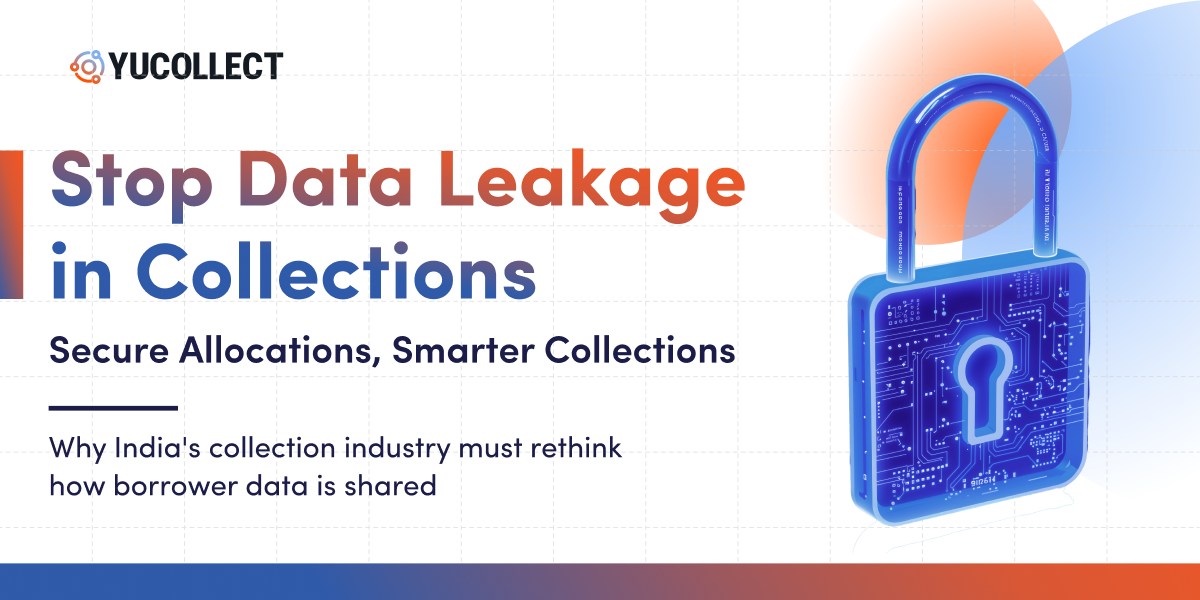
In India’s rapidly digitizing financial ecosystem, data is the new currency. But with this transformation comes a significant challenge — data security during allocation in the collections industry. As lenders work with multiple third-party collection agencies, the risk of data leakage is higher than ever, posing serious concerns around customer trust, regulatory compliance, and brand reputation.
The Growing Challenge of Data Leakage
Lenders typically allocate borrower data to collection agencies via spreadsheets, emails, or basic portals. These systems often lack robust access controls and audit trails, making it easy for sensitive customer information — including Personally Identifiable Information (PII) — to be leaked, mishandled, or misused.
Some common ways data leakage occurs include:
- Agents downloading allocation sheets and storing them on personal devices.
- Forwarding borrower data via messaging apps or email outside the authorized environment.
- Inadequate masking or encryption of PII such as phone numbers, addresses, and loan details.
- Reusing the same allocation data across multiple agencies without version control or visibility.
Why This Problem Persists
The roots of this issue lie in a few key areas:
- Legacy infrastructure: Many lenders still rely on offline or semi-digital methods for allocation.
- Lack of real-time monitoring: There’s limited visibility into who accessed what data and when.
- Multiple agency handoffs: As files pass through several layers of agents and supervisors, the chances of leakage multiply.
- No unified compliance standards: Different agencies operate with different levels of data protection maturity.
Implications of Data Leakage
- Breach of RBI norms and privacy regulations (especially under the proposed Indian Data Protection Bill).
- Loss of customer trust, especially when customers are contacted by unauthorized parties.
- Operational risk for lenders, including fines, legal battles, and reputational damage.
- Cross-selling misuse, where data is siphoned off and sold to other financial services or informal lenders.
The Solution: Secure, Controlled, and Masked Allocation
To solve this, lenders need to rethink how allocations are done — moving away from static file-sharing to secure, cloud-based platforms that offer:
- PII masking to hide sensitive borrower information until it’s actually needed.
- Role-based access control, where agents only see the data relevant to them.
- No download permissions, preventing local storage or sharing of allocation files.
- Audit trails and activity logs to trace every touchpoint of the data.
- Data expiry and revocation, where lenders can revoke access anytime.
How YuCollect Secures Your Allocations
At YuCollect, we’ve built a platform with data security at its core. When you partner with YuCollect:
✅ PII data is automatically masked and only revealed under strict access controls.
✅ Collection agencies and their agents cannot download any allocation data — it’s view-only with strict session monitoring.
✅ Real-time dashboards let lenders track every interaction with borrower data.
✅ Built-in compliance ensures your process is future-ready and regulator-friendly.
Data security isn’t just a feature anymore — it’s a responsibility. In a world where digital trust can make or break a brand, YuCollect ensures your allocations are smart, secure, and leak-proof.
Ready to eliminate data leakage from your collections process?
Partner with YuCollect and transform the way you allocate.









